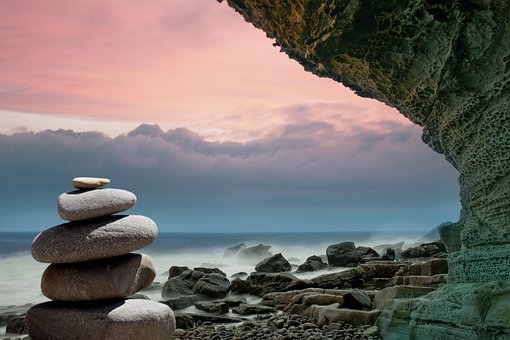Florence Delay writes: “Everything that comes from above is inexplicable. » The merit (and the charm) of this work is to consent to this “inexplicable”but without for all that renouncing to enlighten with intelligence and tact the paths which allow to approach it.
These pages seem like nothing, which seem to have been written haphazardly and go off in all directions according to brief and disjointed chapters. Reflections on painting (Caravaggio, Carpaccio…) rub shoulders with a constant spiritual meditation; erudition, never heavy but deep, blends there with brief anger over the disappearance of the word “charity”, the silliness of modern hymns or France inhospitable to the poor and migrants. (Saint) Paul meets Paul (Claudel) there, Ignace refers to Dominique and François, Georges Bernanos follows Pierre Reverdy, preceded by Gustave Flaubert, Max Jacob and Julien Green. And, like a happy series of ricochets or ford-stones, one jumps from the horse absent from the text of the Acts relating Saul’s conversion to Jerome’s lion or Tobit’s dog.
This list is neither closed nor free. Because what might seem, at first reading, pure wandering or free-spirited association turns out to be secretly magnetized. First by a singular rhythm of writing which suggests more than it demonstrates and leaves to the reader, however skilfully guided, the care to pursue in spirit, if he wishes, this book “way of wandering” (Fernand Deligny). Then by an Ariadne’s thread: that of the presence or, to put it better, of the company of animals, with characters from the Bible and the lives of saints: pig of Saint Anthony (and of Flaubert), ox and donkey of the Crèche, serpent of Genesis, dog of Saint Roch… It matters little whether these animals are attested in the Scriptures or reported by some more or less golden legend. The important thing lies in the relationship that man and animal live, in the concern they have for each other: wisdom of Balaam’s donkey, tenderness of Francis for his wolf or of Jerome for his lion, sharing the path with Antoine’s pig, Rameaux’s donkey or the flight into Egypt. Again, the list is not closed.
This companionship has a double virtue: spiritual, since it inclines to humility and differentiates the saint from the hero, but also poetic, in that it testifies to a world without hiatus between the human and its other components. These two virtues are found in the emotional portraits that Florence Delay draws of poets rarely highlighted: Max Jacob and Reverdy, as in the discreet intrusions of the author that she sows here and there: memories of childhood, brief sadness, anger mastered.
But animals are not only the happy bestiary to which the book would have been devoted. The title of the book refers, not without a smile, to the fall of Paul, a fall/conversion which decided Christianity. This presence of conversion, of this radical reversal and of the charity it engenders, is like the underground current, the hidden river of the work, which opens with the metamorphosis of Saul into Paul, continues with that of Claudel at Notre-Dame, by Max Jacob, “penitent in a pink jersey” whose baptismal godfather was Picasso. This river is not calm: it collides with the churches today empty and sad as with the mystery of the abasement of the Christian god or the Rimbaud spiritual combat. Evoking the admirable passage of Miserables where the bishop of Digne offers silver candlesticks to Jean Valjean to avoid a new arrest, Florence Delay writes: “Everything that comes from above is inexplicable. » The merit (and the charm) of this work is to consent to this “inexplicable”but without for all that renouncing to enlighten with intelligence and tact the paths which allow to approach it.
We want to give thanks to the writer of this short article for this remarkable web content
There is no horse on the road to Damascus by Florence Delay | Spirit Review
Take a look at our social media accounts and also other related pageshttps://nimblespirit.com/related-pages/

